Mexico: Chichen Itza
已發表: 14.01.2018
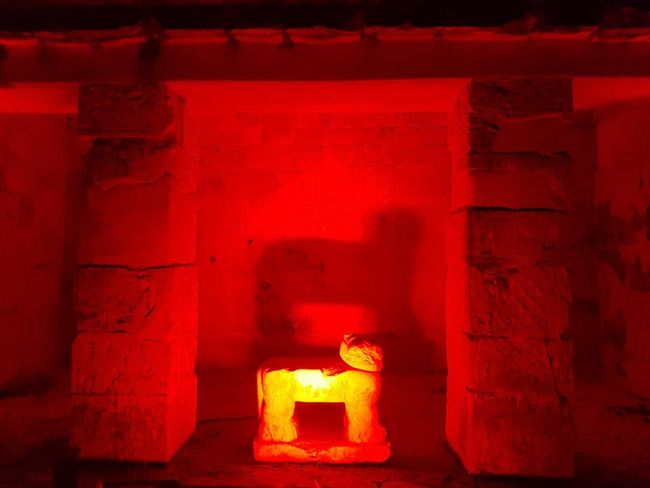
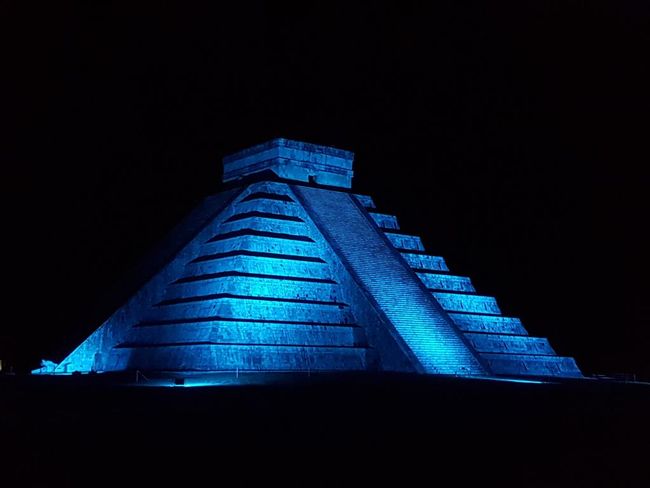
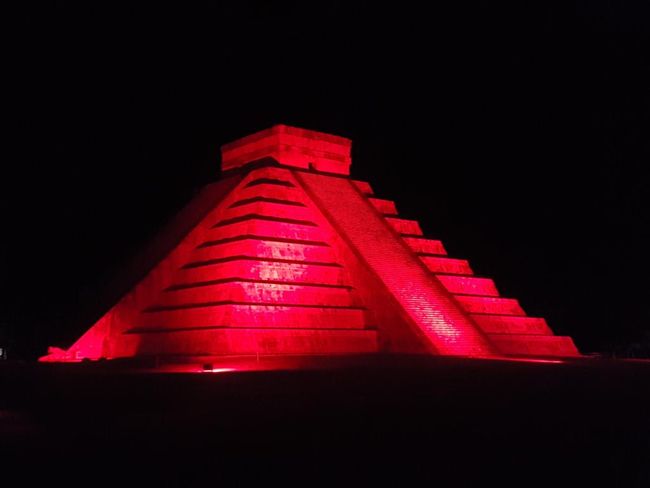
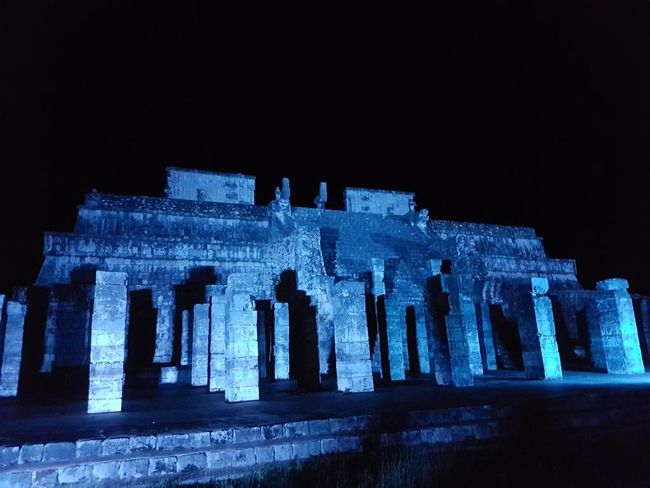
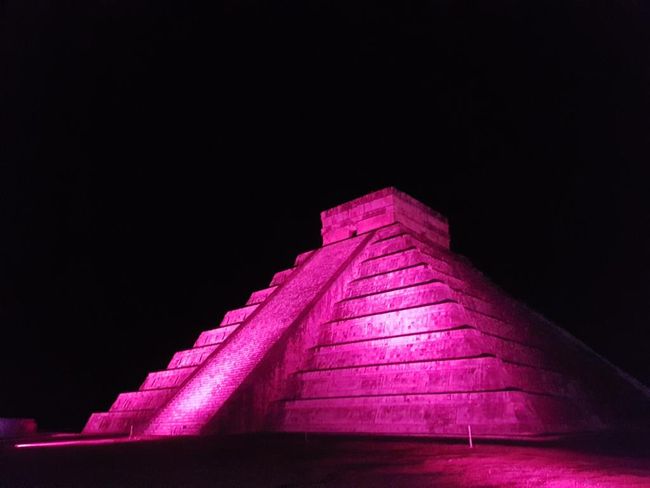
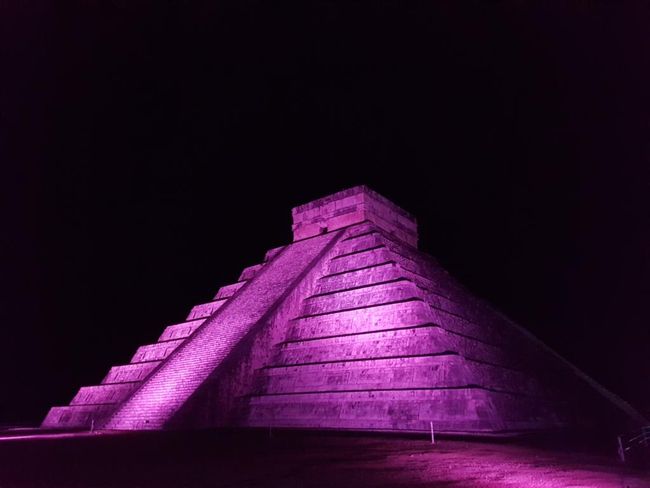
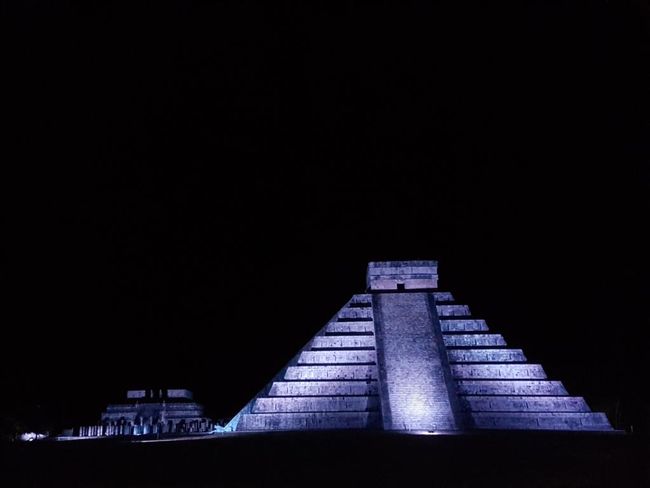
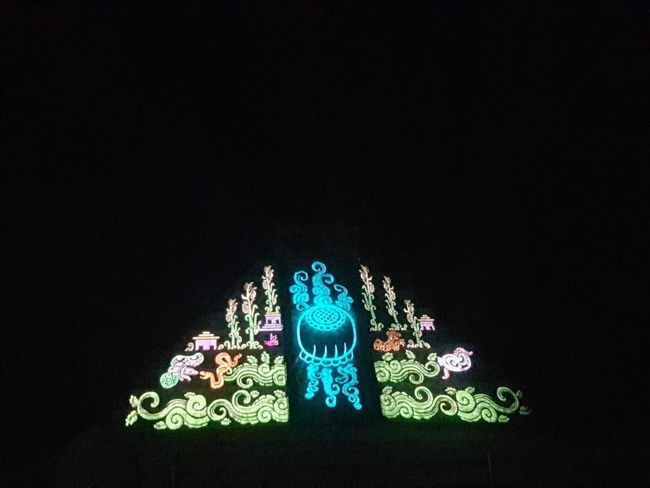
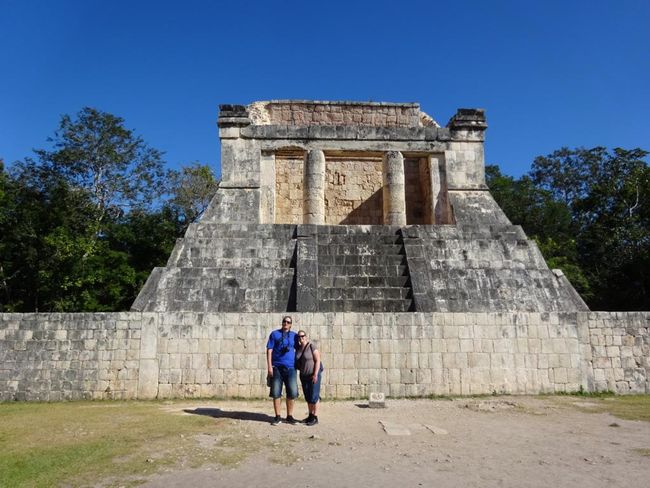
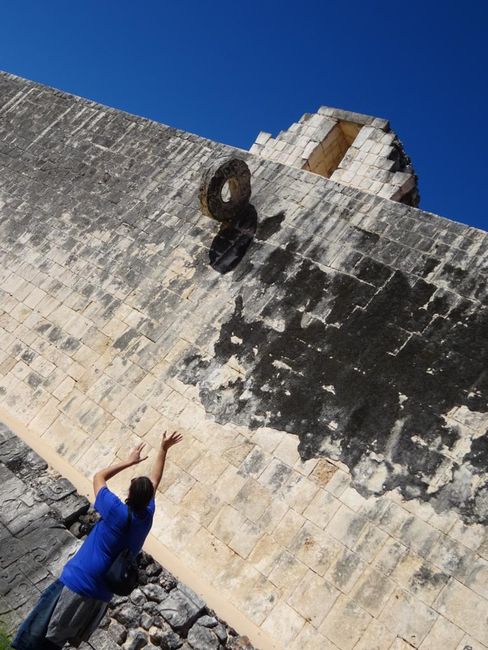
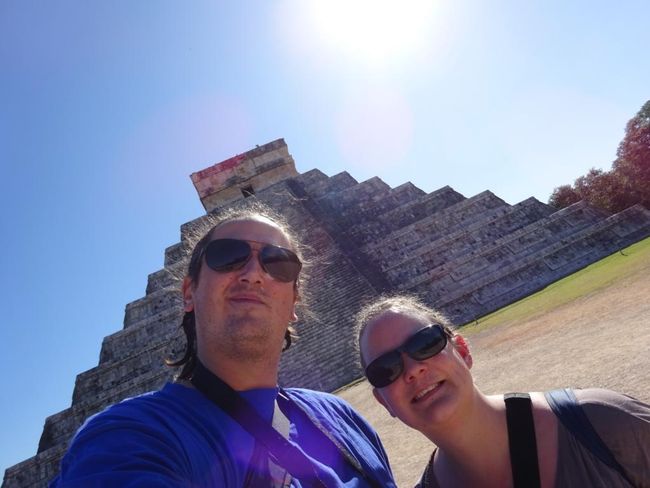
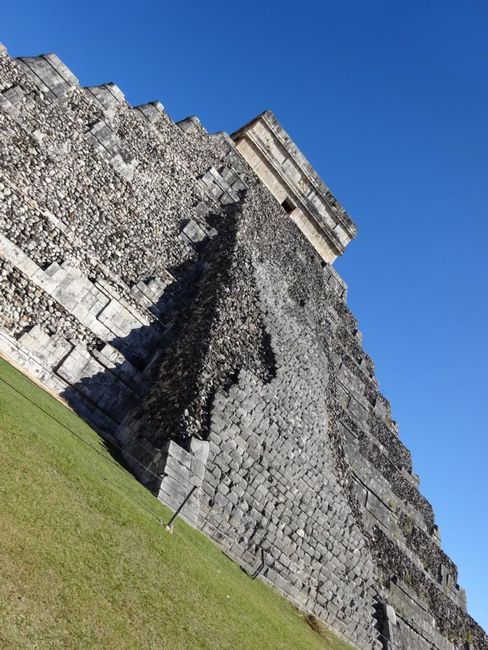
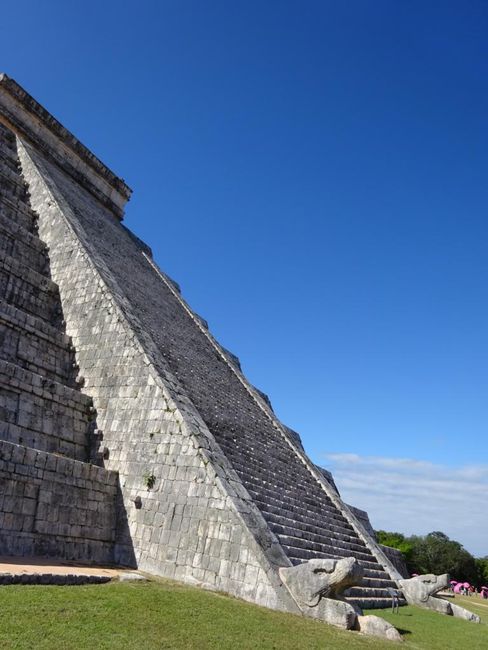
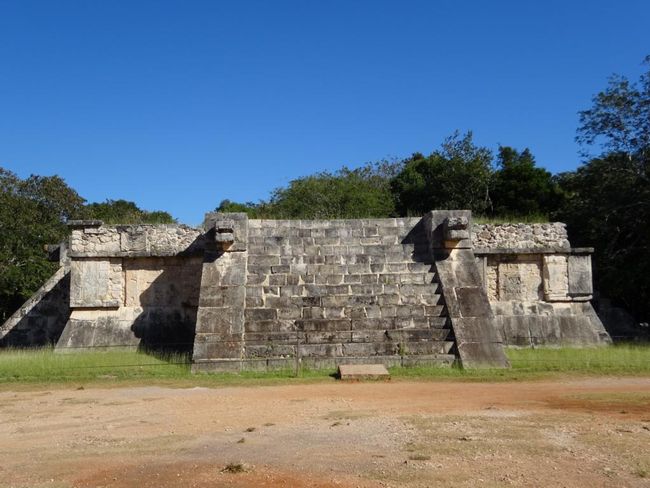
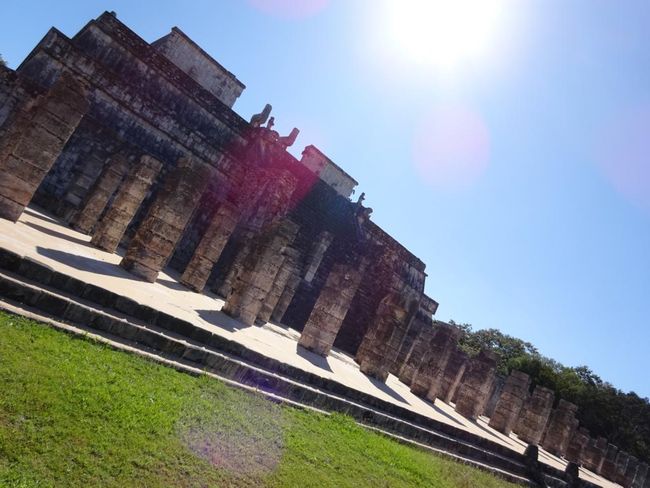
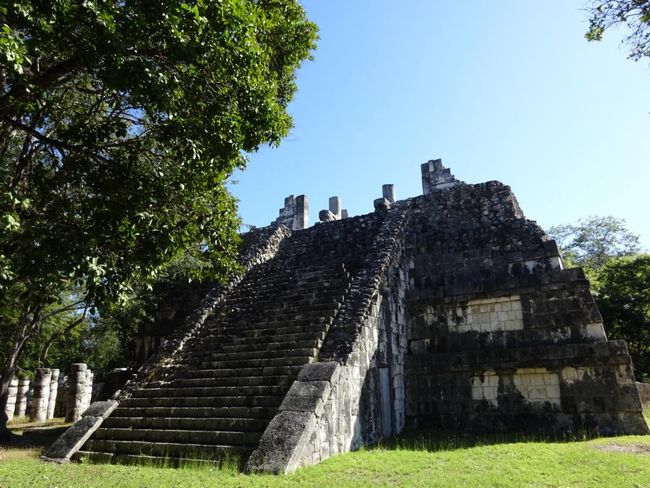
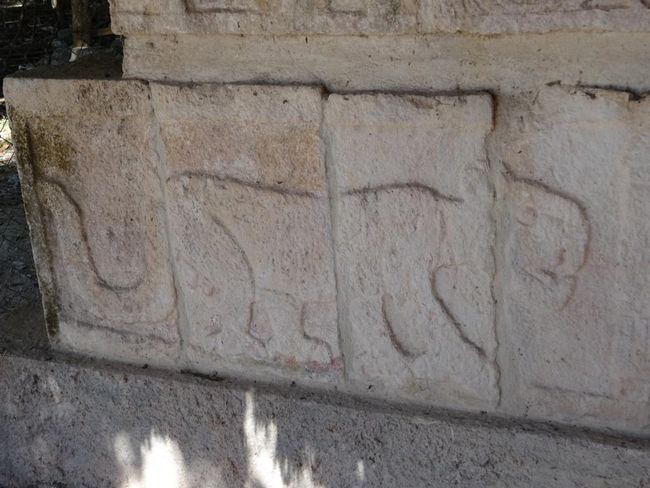
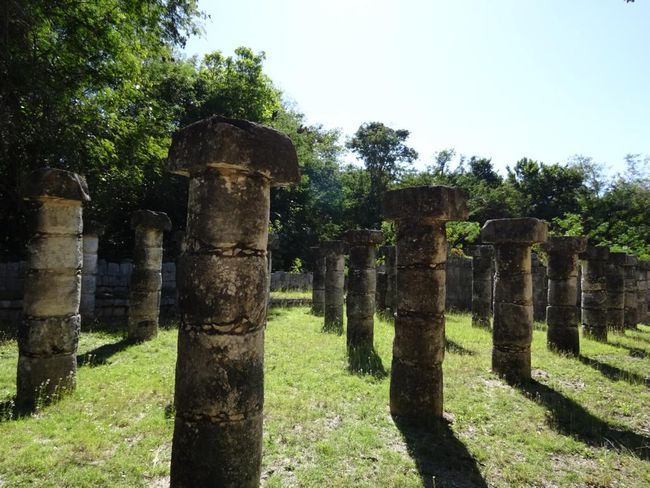
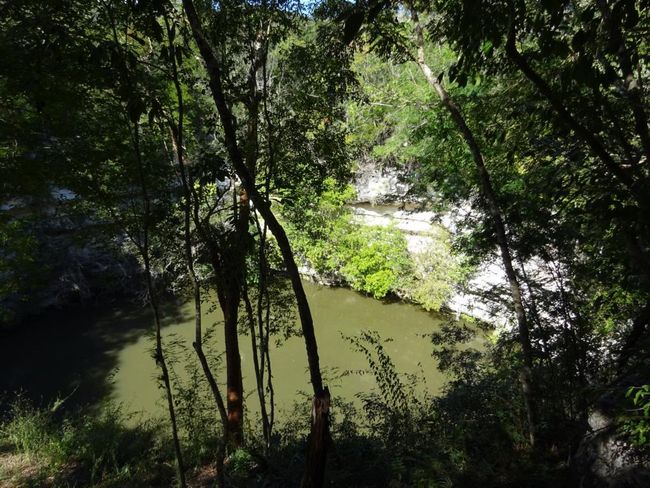

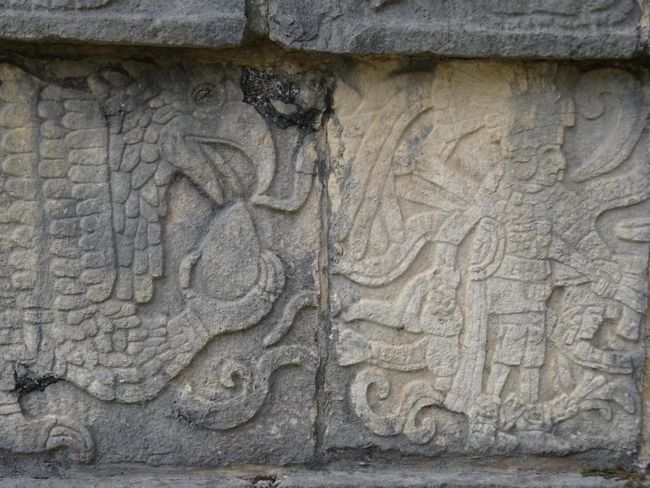
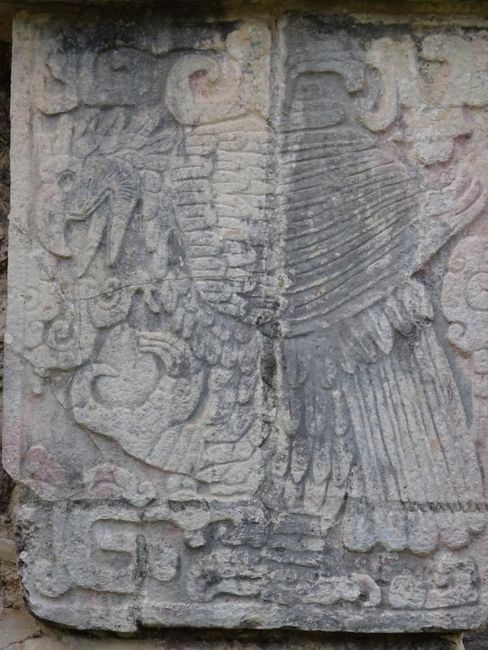
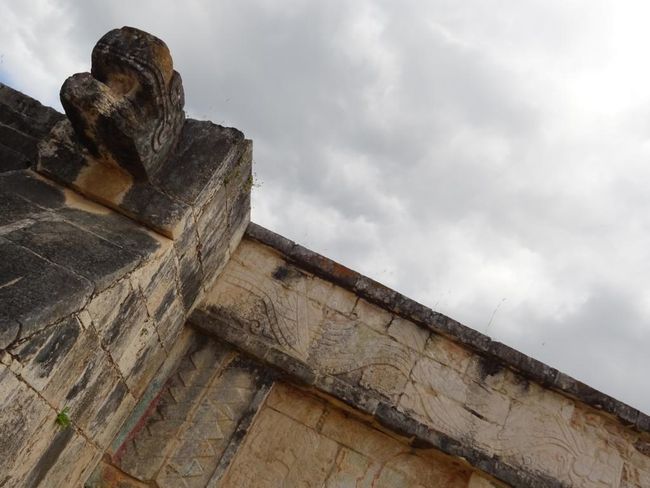
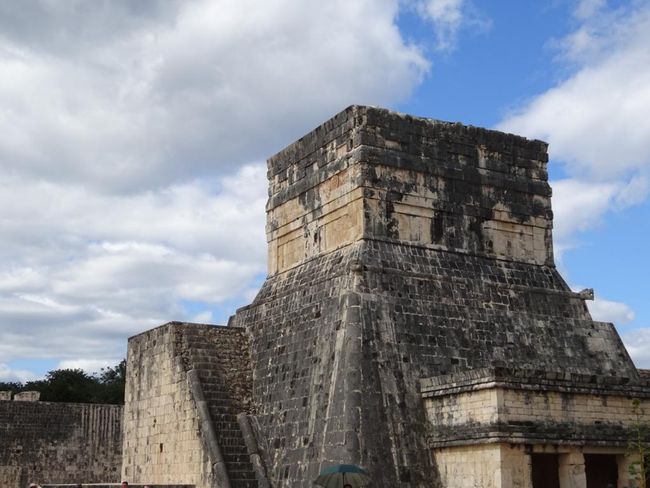
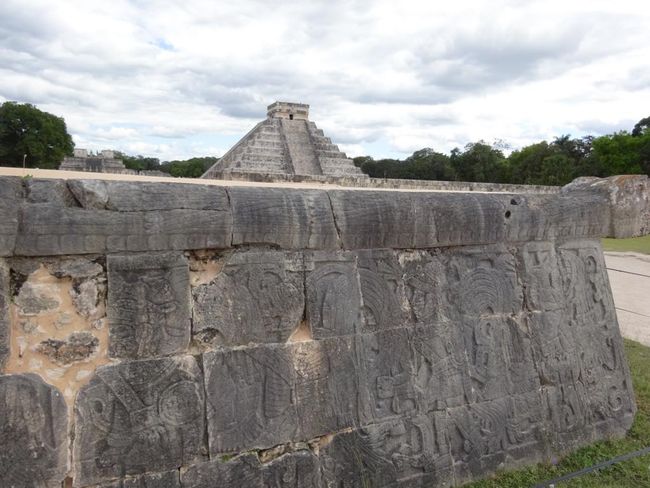
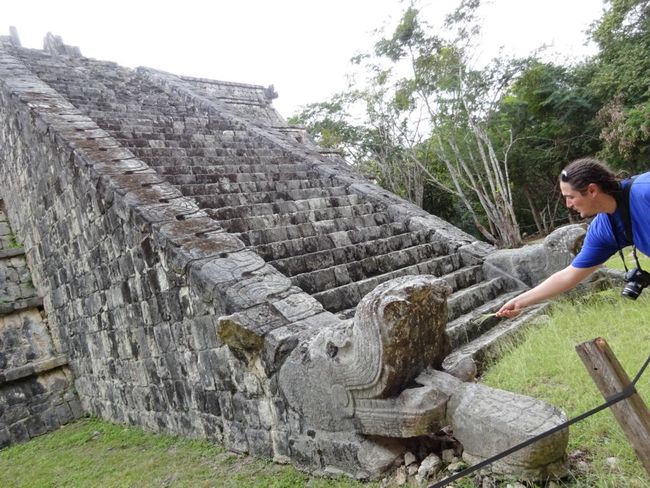
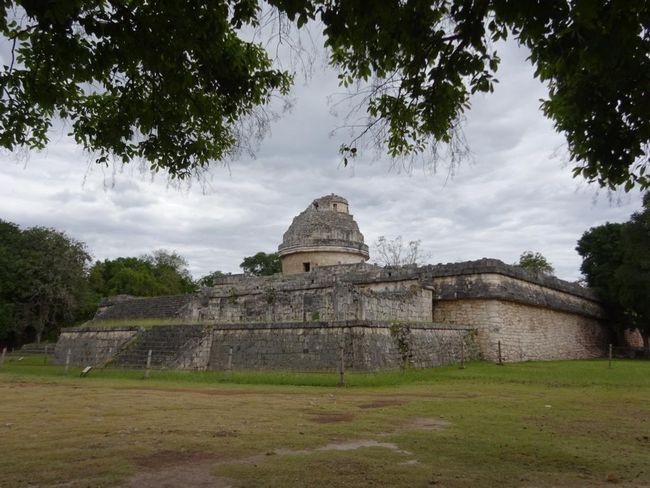
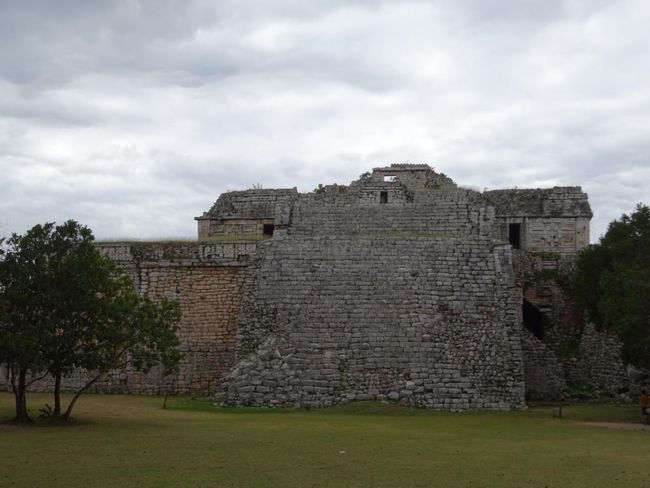
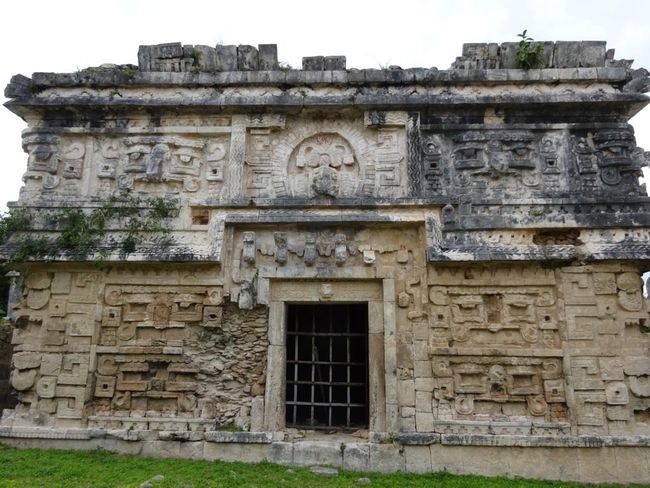
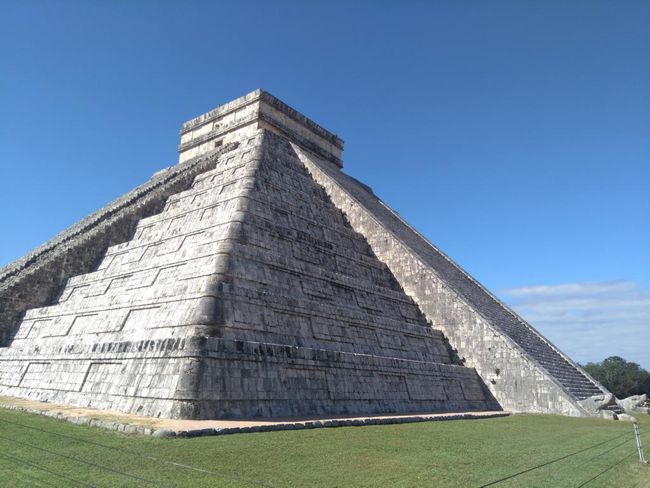
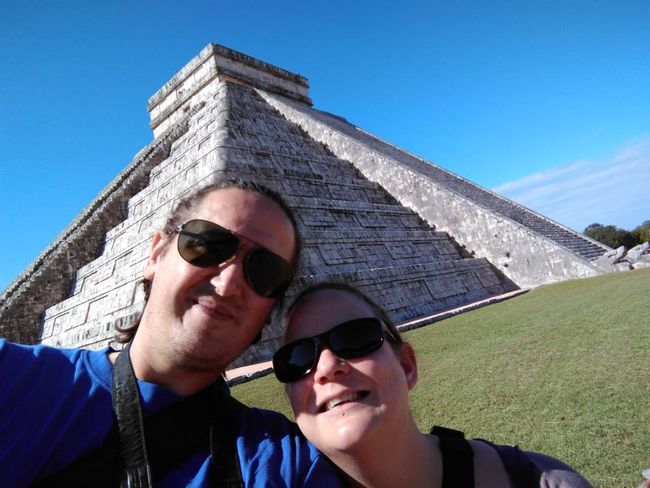

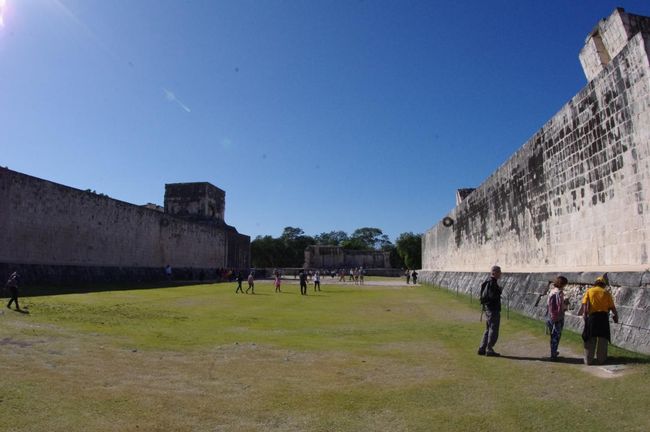
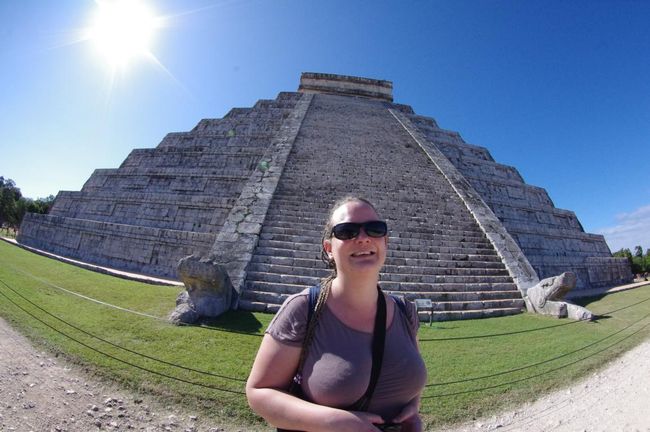
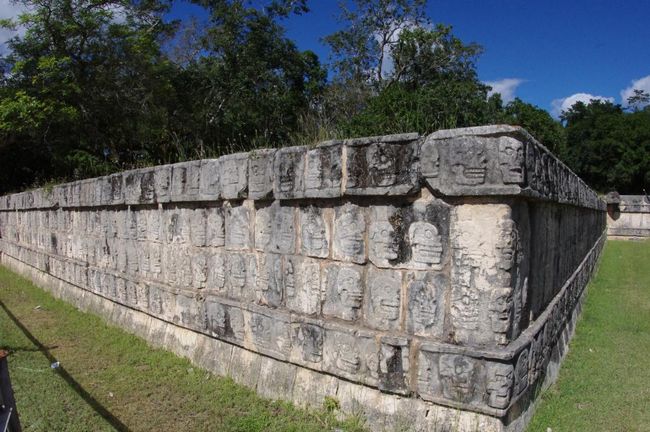
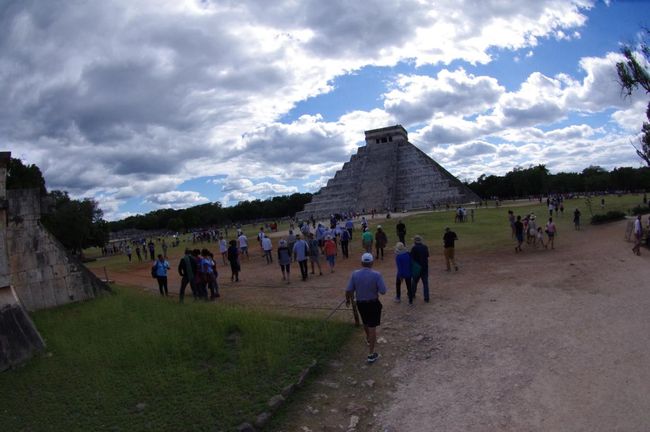
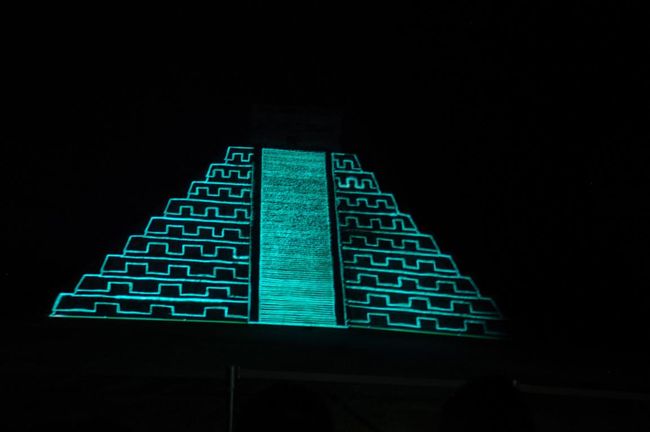
訂閱時事通訊
From Valladolid, we took the bus to Chichen Itza. The bus ride only took about 2 hours. Since everything was already fully booked here as well, we ended up in a pretty terrible hostel, especially the beds were incredibly uncomfortable, and even though the door was locked, you could easily open it with some force. However, the owners of the hostel were very friendly and immediately fixed it after we complained.
Another advantage was that the hostel was only about 2 km away from the archaeological site, so we could easily walk there.
Chichen Itza is one of the most important ruins on the Yucatan Peninsula in Mexico. The ruins date back to the late Maya period. The site is one of the modern 7 wonders of the world and is also within a day trip distance from Cancun and Playa del Carmen, which is why everyone and their dog visits there. As a result, it is very crowded. Additionally, for every 3 tourists, there is at least one seller who wants to sell you souvenirs. A popular souvenir is a type of flute that can imitate the roar of a jaguar deceptively well. In the morning, when you haven't realized it yet, you still excitedly look around with every roar and almost fear that a wild animal will jump out of the jungle at any moment. By noon, you realize that it's just a toy and it's actually quite funny. In the evening, it becomes so annoying that you would rather shove the flute down every merchant's throat.
We had actually planned to be there at the site early in the morning when it opens. However, as we are not exactly early risers, we unfortunately didn't quite make it and were about an hour and a half late, which annoyed Jörg a bit. In his opinion, we were already late and all the people were already there. This opinion quickly changed in the afternoon when REALLY all the people were there. And then we were really glad that we had already looked at the main places before the mass migration of day trippers began.
A positive aspect in this regard is that you are no longer allowed to enter and climb the ruins. This apparently happened in 2006 when a tourist fell to her death from the pyramid. As sad as that is, it has the nice effect that now everyone has the chance to take some beautiful photos of the ruins without people in them.
Most visitors hire a guide to tour the area. Given the huge crowds, it's not necessary because there are so many guides with groups buzzing around everywhere that you can simply freeload and listen in on any group you happen to be near (it's definitely helpful to understand several languages. We had to pass on the Russian tours). Not exactly the nicest way, but at least you save a few pesos, and you're not really bothering anyone, and after all, you can't just disappear into thin air when said group suddenly appears next to you.
The most impressive is certainly El Castillo, the well-preserved 30m high step pyramid in the center of the site. Another highlight is the Juego de Pelota, a ball court that is the largest and most significant among the approximately 520 ball courts of the Mayan culture. It is believed that the ball game changed and evolved over time. The goal was to shoot the ball through one of the two rings attached to the side walls. At times, a type of racket was also used in the game. Do you feel the same way as I do? Because it reminds me a bit of Quidditch. 😊 However, in this game, it is assumed that the losing team was beheaded at the end of the game. That's why I prefer Quidditch.
There are wonderful reliefs everywhere on the site that depict various scenes. In the Juego de Pelota, for example, there are reliefs on both sides of the field that depict the players in their protective gear, and yes, a representation of a beheaded player. There are also quite spooky representations of eagles and jaguars holding human hearts in their hands to eat them. An entire wall is covered with reliefs of skulls. Those Mayas are crazy.....
The fact that you are no longer allowed to enter the ruins has the disadvantage that you may miss many things. In the Temple of the Thousand Columns, for example, you can no longer see many reliefs because you can't walk through the columns anymore. In the interior of the temples, there are still some representations in the original colors, but unfortunately, they are also not accessible to visitors anymore. That's a bit of a shame.
One day is enough to visit the entire site as it is relatively compact.
Another phenomenon that makes the Chichen Itza pyramid so special: Twice a year, during the equinox and some time before and after, one side of the pyramid is almost completely in the shadow at sunset. Only the staircase is illuminated by the sun, and the steps of the pyramid are projected onto it. This band of light eventually combines with a serpent head at the foot of the pyramid for a short time, creating a feathered serpent.
For those who can't make it to Chichen Itza on those dates (especially since it's even more crowded than usual), this spectacle is reenacted every evening in a light and sound show. Since we were already there and had nothing better to do, we also bought tickets for this occasion (which were twice as expensive as the daytime admission). You were then allowed to enter the grounds again at 7 pm and received an audio guide that briefly explained the history of the site and its individual structures. Some buildings were also beautifully illuminated in changing colors. In retrospect, that's actually the whole appeal of the event. During the light and sound show, the history of the Maya and their beliefs is explained in Spanish (the audio guide offers an English translation, but it's hardly understandable because there are no headphones and you hear the Spanish babbling at an insane volume). The images that underline all this are projected onto the large pyramid. The actual phenomenon with this shadow play is then shown so extremely quickly and without much explanation that it's already over by the time you finally realize that it was the end. What a pity. As I said, the actual charm of this evening program is the colorful illumination of the ruins. Otherwise, the light and sound show is not really worth the long wait between the park closing and the start of the spectacle. And whether the colored illumination is really worth the double admission price in addition to the daily price, everyone has to decide for themselves.
訂閱時事通訊
回答
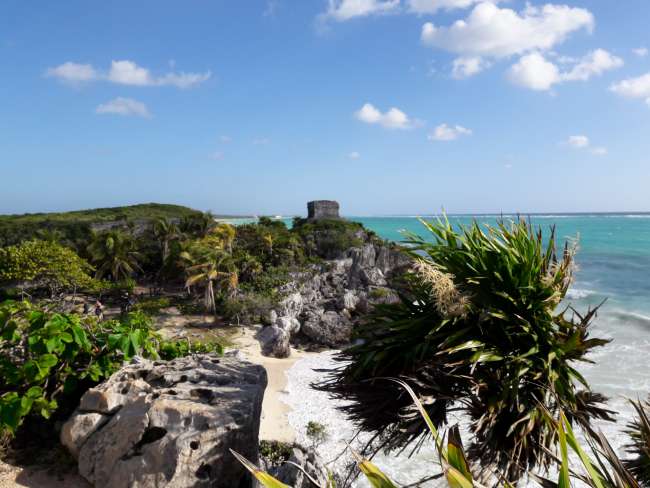
旅遊報告墨西哥

